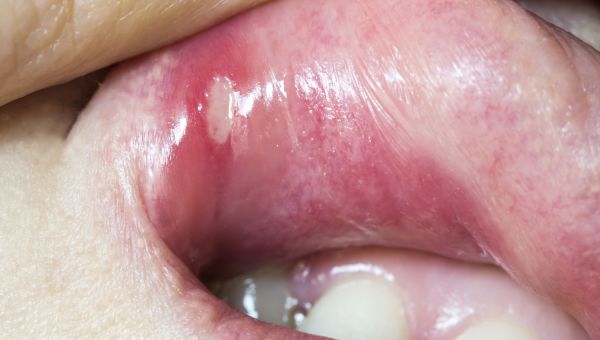What your tongue reveals about your health
From changing colors to curious bumps, your tongue gives important health clues.

Every day, your tongue sends you delightful information like how ice cream tastes or what it’s like to be kissed. But this tiny muscle can also provide clues about how the rest of your body's doing.
“Your mouth and, in particular, your tongue is a window to your body's health,” says David Opperman, MD an otolaryngologist, or ear, nose and throat doctor at Presbyterian St.… Show More
Every day, your tongue sends you delightful information like how ice cream tastes or what it’s like to be kissed. But this tiny muscle can also provide clues about how the rest of your body's doing.
“Your mouth and, in particular, your tongue is a window to your body's health,” says David Opperman, MD an otolaryngologist, or ear, nose and throat doctor at Presbyterian St. Luke's Medical Center in Denver, Colorado. "Checking your tongue should be a daily habit."
Here are six things your tongue could reveal about your health.
Show Less
You’re a teenager with stress and raging hormones
It’s possible to get a canker sore, or aphthous ulcer, at any age, but teenagers get them most often. Canker sores typically happen a few times a year between ages 10 and 20 for people who are prone to them.
We don't have a clear understanding of what causes these small, white or yellow ulcers,… Show More
It’s possible to get a canker sore, or aphthous ulcer, at any age, but teenagers get them most often. Canker sores typically happen a few times a year between ages 10 and 20 for people who are prone to them.
We don't have a clear understanding of what causes these small, white or yellow ulcers, says Dr. Opperman. But they can be brought on by stress, acidic foods and hormone changes.
A canker sore usually gets better on its own after about 6 to 10 days, but you can help it heal by:
- Avoiding irritating, spicy foods
- Keeping your mouth clean so bacteria doesn’t get into the wound
- Using over-the-counter mouthwashes to help numb or soothe painful spots

You’re going through menopause
Menopause can change your body in some unexpected ways. On top of hot flashes and night sweats, some women also develop a tongue condition called menopausal glossitis, or "burning mouth syndrome."
Low estrogen levels during menopause can alter the nerve endings in your taste buds and make it harder… Show More
Menopause can change your body in some unexpected ways. On top of hot flashes and night sweats, some women also develop a tongue condition called menopausal glossitis, or "burning mouth syndrome."
Low estrogen levels during menopause can alter the nerve endings in your taste buds and make it harder for your body to create saliva. Those changes may lead to a burning feeling on your tongue or cause foods to taste bitter or metallic.
This issue may be temporary in some cases, but otherwise can be addressed by your OBGYN. It may go away after simply adjusting your hormone replacement therapy, says Opperman.
Show Less
Your allergies are acting up
Your steroid inhaler may relieve your allergies, but failing to use it properly puts you at risk for a type of tongue infection from the candida fungus, warns Opperman.
The infection, called oral thrush, shows up as a white film over red patches on your tongue. Small amounts of candida live on… Show More
Your steroid inhaler may relieve your allergies, but failing to use it properly puts you at risk for a type of tongue infection from the candida fungus, warns Opperman.
The infection, called oral thrush, shows up as a white film over red patches on your tongue. Small amounts of candida live on everyone’s tongue, but the fungus can become overgrown if:
- Your immune system is weak
- You wear dentures
- You’re taking antibiotics or steroids
“That's why you're advised to rinse your mouth out after using a steroid inhaler,” says Opperman. (Just be sure to spit out the water after rinsing.)
Show Less
You should invest in a tongue brush
Believe it or not, patches of “hair” can actually grow on your tongue. Hairy tongue looks like a black discoloration with hair-like structures on it, explains Opperman.
It happens when keratin, the same protein that makes head and body hair, builds up on your tongue. See your doctor right away if… Show More
Believe it or not, patches of “hair” can actually grow on your tongue. Hairy tongue looks like a black discoloration with hair-like structures on it, explains Opperman.
It happens when keratin, the same protein that makes head and body hair, builds up on your tongue. See your doctor right away if you develop this condition because it has a number of different causes—such as poor oral hygiene, smoking and antibiotic use—and some are more serious than others. Your doctor may be able to offer a quick fix; a tongue brush or scraper can usually help get rid of the unwanted locks.
Show Less
You’re low on vitamin B12
A diet low in vitamin B12 can make your tongue feel sore and look smooth or beefy red, says Opperman. Your doctor may check your blood level of B12 if you have a beefy red tongue because it could signal a type of anemia. Anemia makes it harder for blood to carry oxygen throughout your body and can… Show More
A diet low in vitamin B12 can make your tongue feel sore and look smooth or beefy red, says Opperman. Your doctor may check your blood level of B12 if you have a beefy red tongue because it could signal a type of anemia. Anemia makes it harder for blood to carry oxygen throughout your body and can lead to:
- Pale skin
- Chest pain
- Fainting
- Fatigue, or constantly feeling exhausted
B12 is mainly found in animal products like beef, milk and cheese. Since fruits and vegetables generally have no B12, vegetarians are more likely to have low levels. Vegetarians can up their intake by eating fortified foods like cereal, tofu or soymilk.
Show Less
If a mouth sore sticks around
It’s well known that tobacco products put you at risk for mouth cancer, along with other illnesses like lung cancer and heart disease. If you use tobacco and develop a tongue sore that doesn’t heal for two weeks, don't ignore it. Get in to see an ear, nose and throat doctor (ENT) because something… Show More
It’s well known that tobacco products put you at risk for mouth cancer, along with other illnesses like lung cancer and heart disease. If you use tobacco and develop a tongue sore that doesn’t heal for two weeks, don't ignore it. Get in to see an ear, nose and throat doctor (ENT) because something more serious could be going on, warns Opperman.
Mouth cancer sores usually look like red or white patches and may feel velvety. But don’t try to diagnose yourself; visit an ENT for any suspicious, long-lasting mouth sores.
Show LessMore On


video

article

slideshow


video


video
